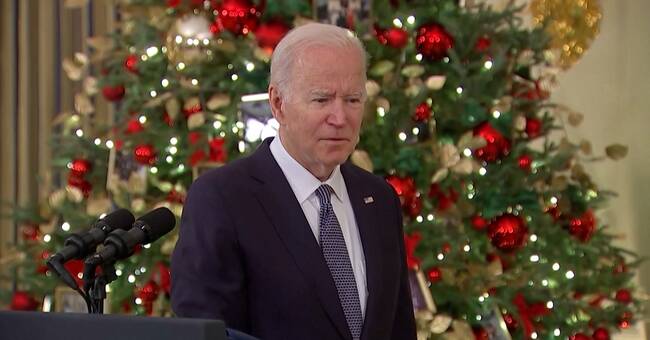Next week, the United States and Russia are planning a digital meeting between Joe Biden and Vladimir Putin.
This was confirmed by both the White House and the Kremlin on Friday, without giving a specific date.
The meeting, which will be the second between the leaders, comes at a time when fears of a Russian invasion of Ukraine remain high.
During a press conference on Friday, President Joe Biden warned of harsh sanctions against Russia.
"I am developing what I believe are the most powerful and meaningful measures to make it very, very difficult for Mr Putin to do what people are afraid he will do," Biden said, according to the AP.
Accuse each other
The tense situation in the conflict has not abated after the meeting in Sweden between the US Secretary of State Antony Blinken and his Russian counterpart Sergei Lavrov.
Blinken, who said that the United States has evidence of a planned Russian invasion, says that the country will respond with determination if Russia puts its plans into action.
- Despite a massive Russian disinformation campaign, Ukraine does not in any way pose a threat to Russia, or seek confrontation in a way that would justify military intervention.
The only threat is that of new Russian aggression, Blinken said after the meeting.
Lavrov, for his part, accuses the United States and NATO of moving ever closer to the Russian border and demands that expansion stop.
"As President Putin has said, we do not want any conflicts," Lavrov said.
Tougher rhetoric
According to Oscar Jonsson, a researcher in Russian warfare, the political rhetoric in the conflict has become noticeably tougher in the last six months.
- Russia's demands have become much stronger and they want legally binding guarantees, and then they start to question Ukraine's right to exist as a state, says Oscar Jonsson.
Reports are coming in from both the US and Ukraine on how Russia is mobilizing at the border with Ukraine.
According to the Ukrainian government, Russia has gathered 115,000 troops at the border, including on the annexed Crimean peninsula.
Javascript is disabled
Javascript must be turned on to play video
Read more about browser support
The browser is not supported
SVT does not support playback in your browser.
We therefore recommend that you switch to a different browser.
Read more about browser support
Hear the expert Oscar Jonsson answer three questions about the situation right now.
Photo: SVT / Reuters

